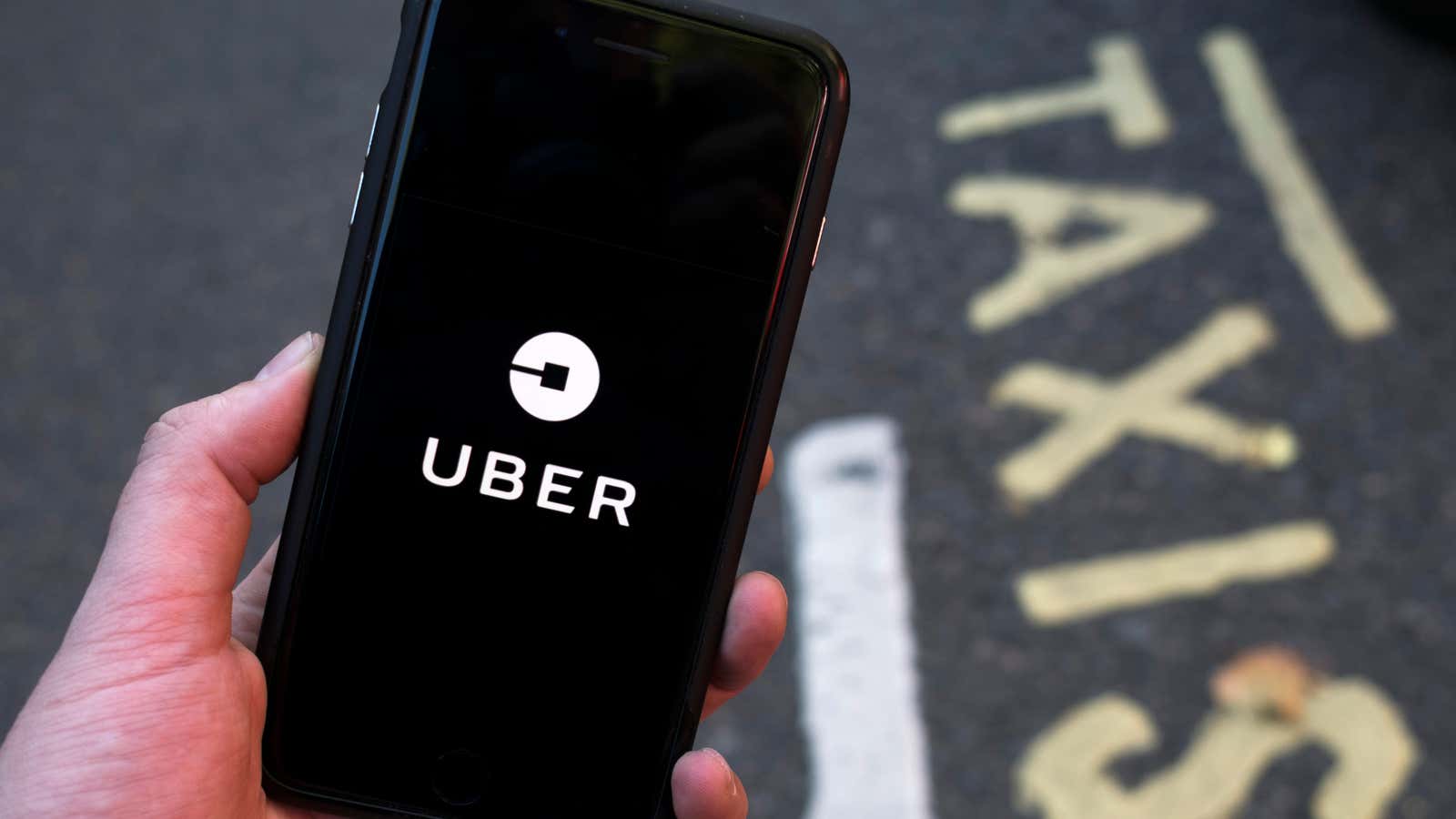Egypt is the latest country where Uber is facing the fury of officials and taxi operators, who have accused it of flouting local regulations, short-changing drivers, and avoiding taxes.
On Tuesday (March 20), an administrative court ordered Uber and its Dubai-based competitor Careem to halt operations in the country, noting that it was illegal to use private vehicles as taxis. The court also asked authorities to revoke the two companies’ licenses and block their mobile apps and software. The ruling was based on a 2016 lawsuit filed (in Arabic) by local taxi drivers, who stated the ride-hailing companies were in violation of Article 32 of the traffic law, which prohibits using privately-licensed vehicles for commercial purposes.
Uber said it would appeal the decision, adding the verdict didn’t mean it was suspending operations in Egypt. A company spokesman for Careem told Quartz they had heard the news but were still operating. “We have not received any official request to stop operations. It’s business as usual.”
The court’s decision comes a month after Uber shuttered its activities in Morocco lamenting a lack of “clarity” on regulatory frameworks. The company faced irate taxi drivers in the North African nation, who accused Uber of having an unfair advantage. Since its entry into Africa over four years ago, drivers in South Africa and Kenya have also accused Uber of growing into a monopoly, with cabbies even harassing and attacking Uber drivers in Nairobi.
Similarly, as it expanded to over 90 cities in 13 countries since its founding in 2012, Careem has faced legal battles and protests in countries like Jordan and Pakistan.
For both companies, Egypt was seen as an attractive market. This is especially true in Cairo, a city of almost 23 million people that’s infamous for traffic jams and inefficient public transport. For Uber, Egypt is currently one of its fastest-growing markets in the world. The San Francisco-based company also plans to tap into the market of daily commuters and invest in a national bus service.
Careem is also doubling down on Egypt, promising to raise its investment from $25 million to $75 million. Last year, it introduced Careem Scooter as part of its fleet, with the aim of helping customers run errands faster on motorcycles.
Yet for all their ambitions in Egypt, dealing with local regulations will be the two companies’ biggest difficulty. Last year, the cabinet approved a law that would regulate Uber and Careem’s operations, forcing them to cap drivers’ hours of operation and pay taxes and insurance on their behalf. The bill is yet to appear before parliament for discussion.
